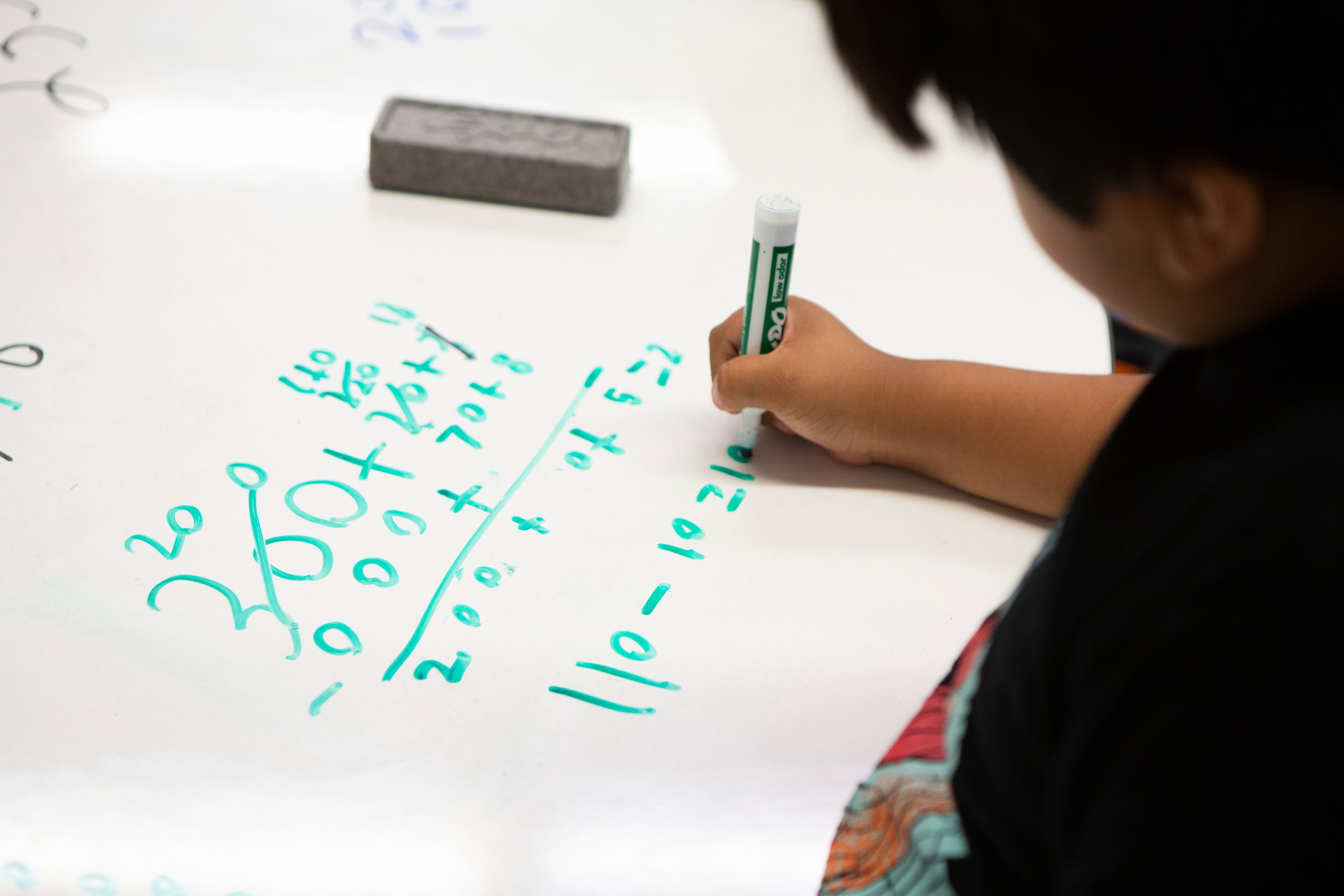Sign up for Chalkbeat Philadelphia’s free newsletter to keep up with news on the city’s public school system.
Philadelphia students’ math scores have improved over the past three years and student attendance is on the rise, according to preliminary student performance data for last school year shared at a school board meeting Thursday.
Still, the district remains far from hitting the goals set by the Board of Education, which state that more than half of all students in grades 3-8 should achieve proficient math and English language arts, or ELA, scores by 2030.
In math, 25% of students in grades 3-8 scored proficient or advanced on the Pennsylvania System of School Assessment, known as the PSSA, marking a nearly 9 percentage point increase from three years ago.
The scores show a rebound from the pandemic and reflect the district’s new curriculum, Superintendent Tony Watlington told the board.
“When you hear people say the district is not getting better, we encourage all of us to fact-check folks on the record, because they are,” Watlington said.
But the preliminary scores also show areas of struggle for the district’s nearly 120,000 students.
Over the last three years, grade 3-8 English language arts scores have fallen slightly, with around one-third of students scoring proficient or advanced. In high school, students’ scores on the state Keystone literature exam also fell over the last two years.
The scores indicate the district is still recovering from pandemic learning loss and a subsequent dip in student achievement. Third grade reading scores remain below where they were a decade ago.
At the meeting Thursday, board member Crystal Cubbage pointed out that the district’s test score goals are “ambitious.” Watlington said he plans to keep the targets the same “because we’re doing better in some areas than others” and will review them annually.
Last year, the board voted to adjust the goals and extend the district’s deadline to reach them to 2030. They were originally set in December 2020 before the COVID pandemic and were crafted to be reached by 2026.
District officials say new curriculum, support will improve achievement
The new data comes in the wake of the district’s $100 million curriculum overhaul. Last year was the district’s second year using a new math curriculum and first year with a new English language arts curriculum; this year, it’s rolling out a new science curriculum as well.
Jermaine Dawson, the district’s deputy superintendent of academic services, said the results show where the district needs to provide students and teachers with more support with the new curriculums. The low English language arts scores, in particular, show that students are starting behind from where they should be, he said.
“In ELA we are not happy with those results,” Dawson said. “What this curriculum has exposed for us is that many of these students did not have the foundational skills.”
Dawson said the district has provided further support and training to teachers on implementing curriculum, including professional curriculum learning days that teachers could receive a stipend to attend.
Last year, the district also provided “high-impact” tutoring to around 500 students in English language arts and math. It plans to expand the program to 20 schools this year to serve more than 600 students.
The Pennsylvania Department of Education is expected to release the final results of the 2024-25 school year PSSA and Keystone assessments in November.
Rebecca Redelmeier is a reporter at Chalkbeat Philadelphia. She writes about public schools, early childhood education, and issues that impact students, families, and educators across Philadelphia. Contact Rebecca at rredelmeier@chalkbeat.org.
Carly Sitrin is the bureau chief for Chalkbeat Philadelphia. Contact Carly at csitrin@chalkbeat.org.







